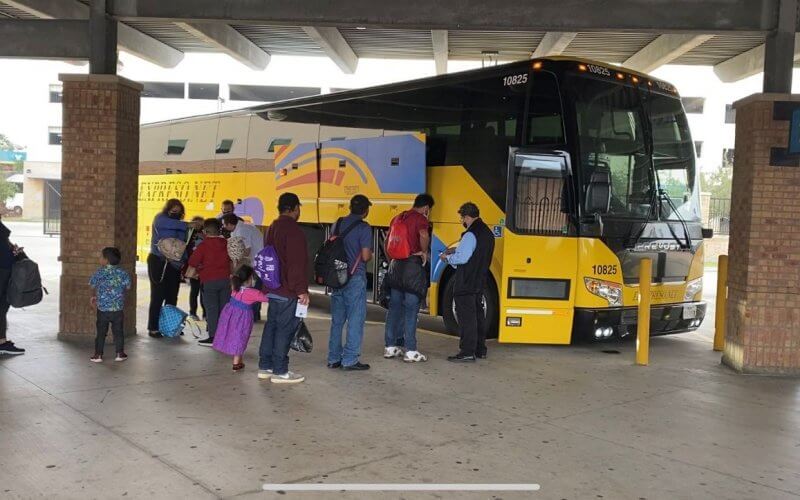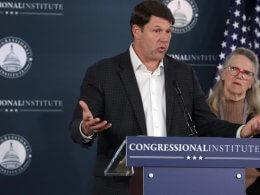By: Brett Rowland | The Center Square
State and local governments far from the border face significant financial challenges when helping migrants, a new report warns.
"State and local governments are shouldering the rapidly growing costs of assisting migrants and asylum seekers as their numbers increase in the U.S," according to a new report from S&P Global Ratings. "If this issue remains significant enough for long enough, the increase in costs and social service requirements could affect states' and local governments' credit quality."
As migrants cross the U.S.-Mexico border in record numbers, some stay in Texas or other border states. However, Texas Gov. Greg Abbott's and others' busing programs have taken many to New York, Denver and Chicago. Those big cities – and their corresponding states – have struggled to find money for new arrivals. The mounting financial pressures have created new challenges in all three cities.
In December 2023, the immigration court backlog reached 3 million pending cases. That's an increase of 1 million from 2022, with almost 2 million new proceedings filed in 2023. Texas started transporting new arrivals out of the state in 2022. Of the 100,000 migrants and asylum seekers Texas has transported, 83,600 were sent to three cities: New York, Chicago, and Denver.
The Democratic-run city of El Paso also has bused tens of thousands of migrants north.
"These cities are adjusting their budgets to accommodate rising expenditures, but without state and federal government support, these costs are significant enough to strain budgets and could pressure credit quality," according to the S&P Global Ratings report. "As the number of migrants and asylum seekers rises, the budgetary strain on these cities has become increasingly visible."
New York City, which has an AA credit rating, has reported that since April 2022, more than 175,300 migrants and asylum seekers have come through the city's intake system. As of Feb. 8, 2024, New York City had more than 65,800 people in its care. The city's "right to shelter" law requires it to provide shelter to those in need. New York City has revised migrant-related spending to a projected $4.2 billion for fiscal year 2024 and $4.9 billion for fiscal year 2025. And as costs grow, the city has started to adopt measures to control costs.
"To accommodate rising program costs, NYC is implementing several cost-saving measures, including provisions for single migrants and asylum seekers to reapply for shelter after 30 days, and for families after 60 days," according to the report.
Chicago, which has a BBB+ credit rating, has a "Welcoming City" ordinance that requires it to provide migrants with shelter, food and medical care. The city also has temporary protection laws that allow asylum seekers from certain countries, and people who are facing war or natural disaster, to stay in Chicago. Some of Chicago's suburbs have passed ordinances prohibiting migrant drop-off without advanced approval. Chicago's estimated migrant relocation costs in 2023 totaled about $275 million. In addition to setting up shelters, the city has been working with religious groups and nonprofits to care for migrants. Last month, Chicago Mayor Brandon Johnson extended the maximum stay time in shelters by 30-60 days for most migrants.
"If support from the state and federal governments does not materialize as expected, the impact on Chicago's bottom line could be sizable," according to the S&P report. "How the city manages these pressures, particularly when faced with high costs for its underfunded pension programs, could have a longer-term effect on its credit quality."
In Denver, a much smaller city with a AAA credit rating, the challenges are more acute.
"Only one month into the 2024 fiscal year, the city has identified significant cost overruns related to its migrant support programs for case management and housing solutions, contributing to a potential year-end operating deficit," according to the S&P report.
While the mayors of all three cities have called on the federal government for more help, it remains unclear how much help it will offer.
"Given current political dynamics in Washington D.C. and the upcoming presidential election, we do not consider additional federal support likely," the authors of the S&P report wrote. "Therefore, cities on the front line of migrant and asylum seeker inflows will have to face the uncertainty of rising costs without a guarantee of revenues to offset the expenditures."
Related Story: Denver Announces First Round of Service Reductions to Pay for Migrant Support










